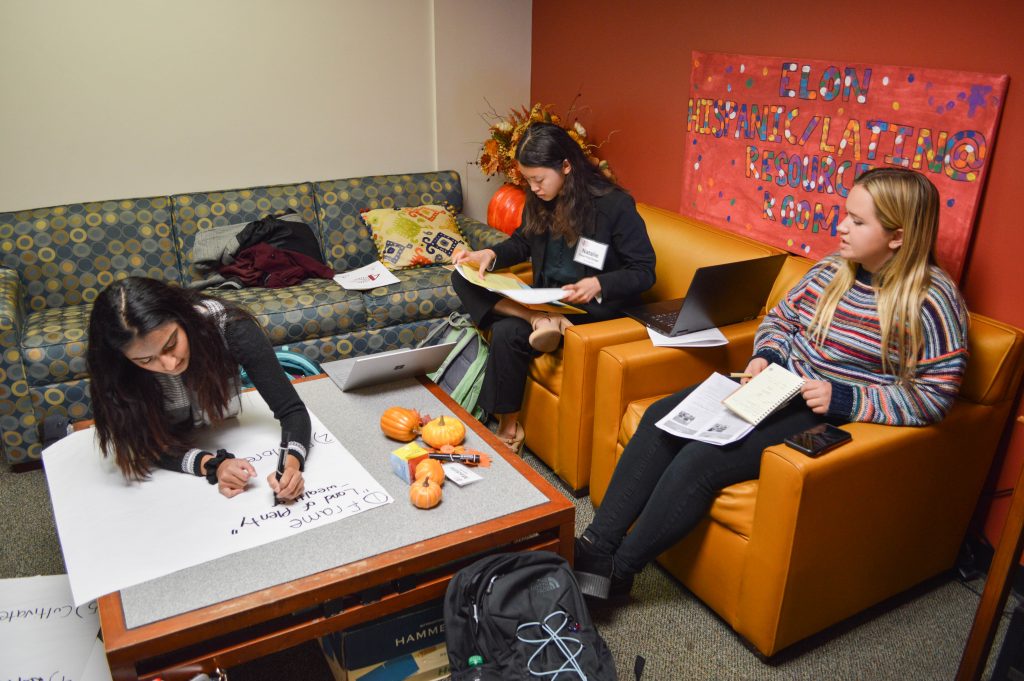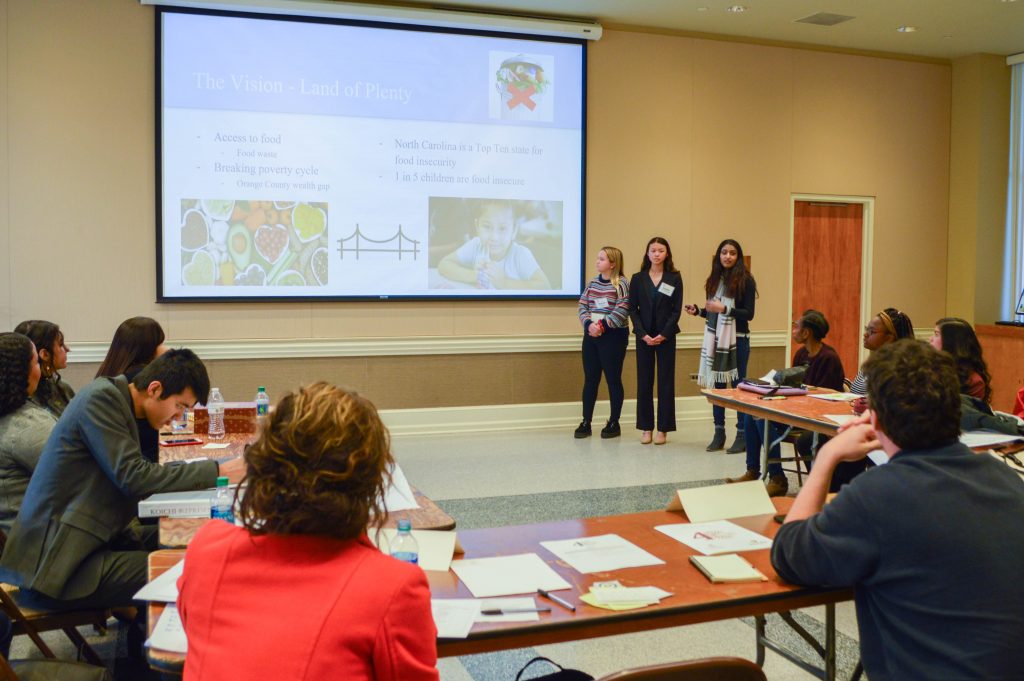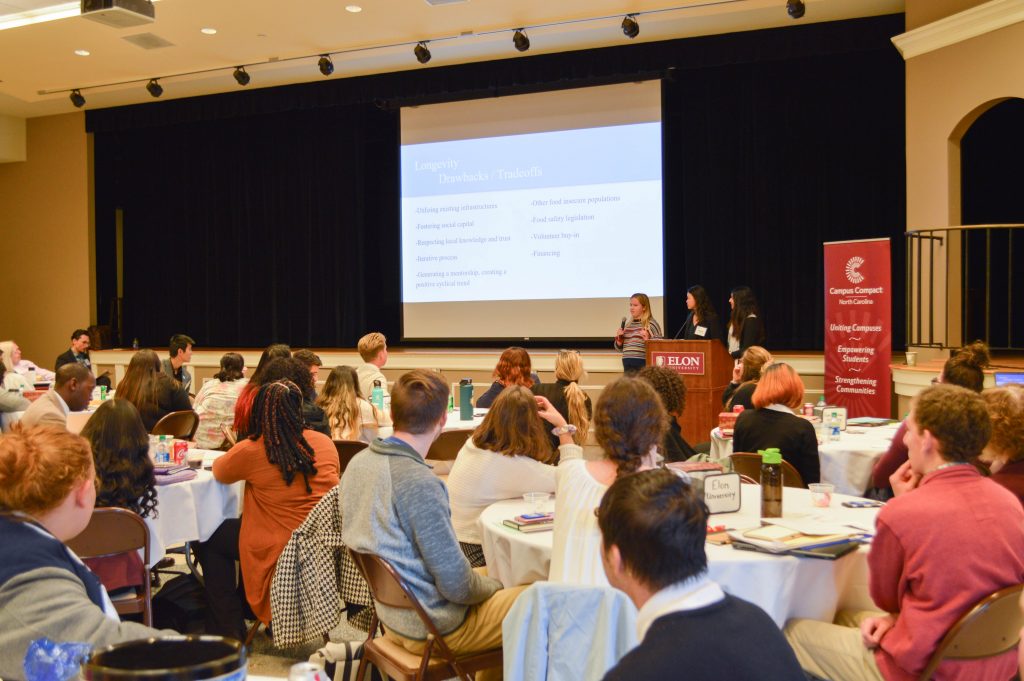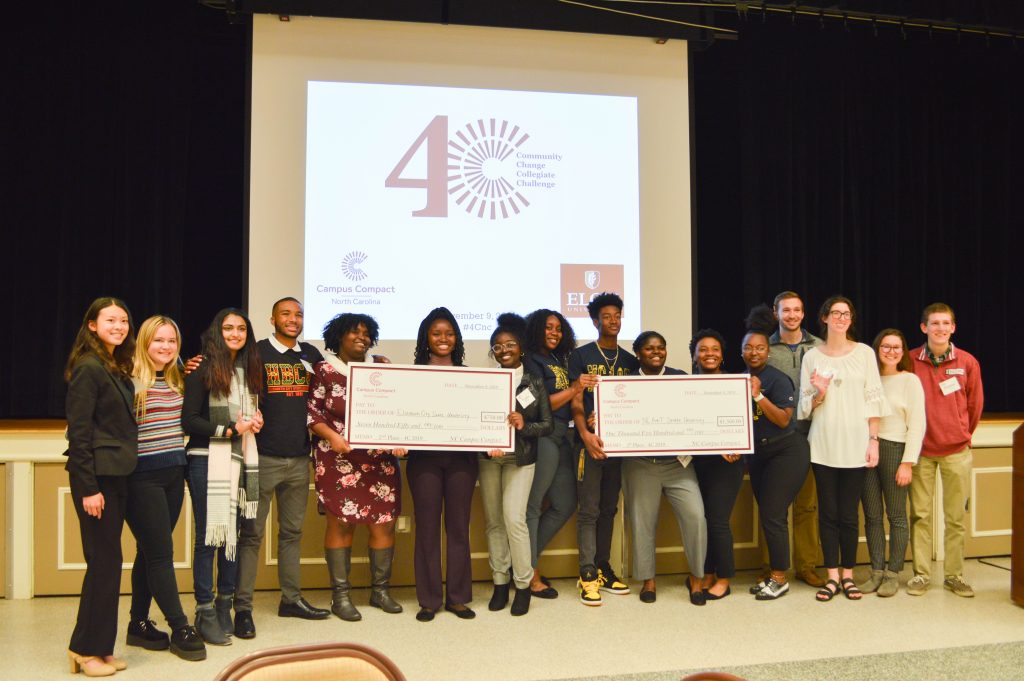On a cold but sunny Saturday in November, three Carolina undergrads drove together to Elon University for an intercollegiate competition, where teams from 16 colleges across the state worked to answer the question: “How do we make sure people have the food they need?”

As one might expect, the day ended with group presentations in front of judges and a distribution of cash prizes. But the event, which was hosted by North Carolina Campus Compact, started with a notably noncompetitive exercise. In the morning, the students gathered in small groups for two hours of deliberative dialogue: exchanging thoughts and ideas around the various approaches one might take to answer that difficult question of world hunger.
Facilitators did not expect students to land on one right answer, or even a ‘best’ one. It was simply a civil discussion about the benefits and tradeoffs of different pathways to the same ultimate goal.
“Sitting down discussing food insecurity with a group of individuals from all over North Carolina taught me the value of listening to multiple perspectives to tackle a state-wide and national problem,” said Carolina sophomore Maddie Mizelle, a Community Service Scholar who participated in the event.
Junior participant Natalie Rose-Ying Gauger, also a Community Service Scholar, agreed.
“Meeting student leaders from across North Carolina enabled a critical dialogue for fostering social change and meaningful impact,” she said.
Participant Ami Patel, a Carolina senior, said she learned the importance of reaching out to key constituents to seek insight and collaboration for solutions to big problems like hunger.
“Meeting a group of individuals just as passionate as myself inspired me to continue to take my passions and efforts forward,” she said.

After the first round of team presentations at the event, which was called the Community Change Collegiate Challenge (4C), judges chose the UNC-Chapel Hill team as a top-four finalist. Ultimately, though, the top prizes went to NC Agricultural and Technical State University (first place) and Elizabeth City State University (second place).

And in the end, the Carolina participants agreed the real winnings were new knowledge about the issue of hunger, new understandings of how to tackle it and new relationships with other students striving to make a difference.

